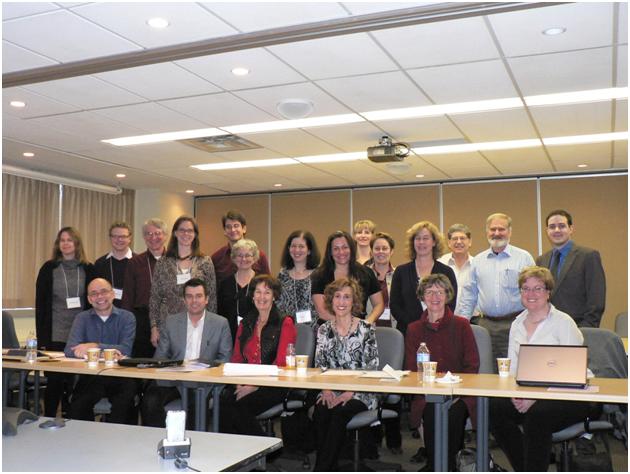By Alexandra Prados-Torres, Beatriz Poblador-Plou and Amaia Calderón-Larrañaga (from left to right)
The improvement of living conditions and the scientific-technological advancements have led to an increased prevalence of multimorbidity, especially, but not only, in the elderly population. It is also higher than expected in younger aged individuals [1]. Although multimorbidity has a significant impact on population health and healthcare systems, these are still mainly focused on diseases instead of patients, offering fragmented care (i.e. primary vs. specialized, health vs. social, etc.) and lacking evidence-based guidelines and/or appropriate clinical interventions for managing patients with multimorbidity [2,3].
Multimorbidity has not been sufficiently investigated in terms of its underlying pathophysiological mechanisms, specific diseases interactions, its consequences on health services utilization and outcomes, or even its definition and measurement.
This project, which will be carried out by researchers from the Aragon Health Research Institute (IIS Aragón, Spain) between 2012 and 2014 will focus on:
1- Epidemiology of multimorbidity based on methods that help identify the simultaneous non-random occurrence of health problems (i.e. multimorbidity patterns) in different population groups.
2- Health services utilization patterns among patients with multimorbidity which may reveal an unjustified variability among providers regarding prescription drug costs, scheduled visits and referrals to specialty care as a clear sign of inefficiency.
3- Potential ineffective or unsafe healthcare received by patients with multimorbidity due to preventable hospitalizations, in-hospital complications and readmissions, and polypharmacy-driven adverse drug reactions.
To this end, a retrospective cohort study has been designed including the entire population assigned to any of the 119 primary care centres in the region of Aragon (i.e. over 1,200,000 inhabitants). Thus, a person-based integrated database will be generated containing clinical and administrative information from primary care, specialized care and emergency care. This strategy, which has not been sufficiently exploited in the Spanish context to date, will enable the linking of patients’ health services utilization patterns with their multimorbidity profile.
This project is expected to provide evidence in relation to the causes and consequences of multimorbidity so that this hidden public health problem is recognised and urgently addressed by the various actors of healthcare systems.
The research group led by Dr. Alexandra Prados-Torres (sprados.iacs@aragon.es) is interested in establishing international collaborations and would very much appreciate the feedback of any of the members of the “IRCMo”.
1.- van den Akker M, Buntinx F, Metsemakers JF, Roos S, Knottnerus JA: Multimorbidity in general practice: prevalence, incidence, and determinants of co-occurring chronic and recurrent diseases. J Clin Epidemiol 1998, 51:367-375.
2.- Fortin M, Lapointe L, Hudon C, Vanasse A: Multimorbidity is common to family practice: is it commonly researched? Can Fam Physician 2005, 51:244-245.
3.- Fortin M, Dionne J, Pinho G, Gignac J, Almirall J, Lapointe L: Randomized controlled trials: do they have external validity for patients with multiple comorbidities? Ann Fam Med 2006, 4:104-108.



